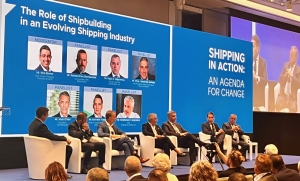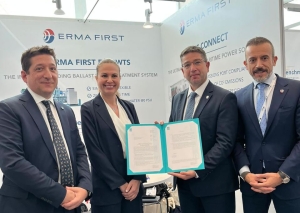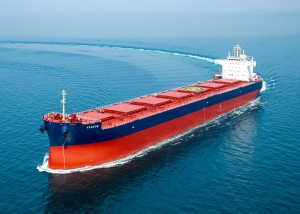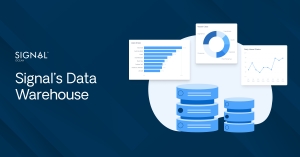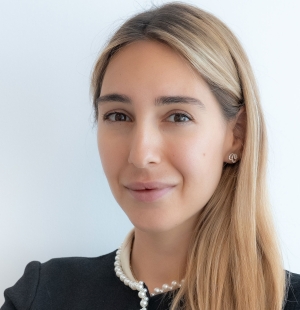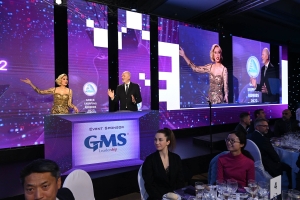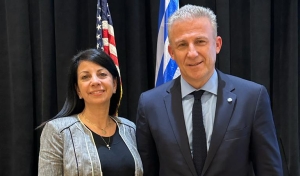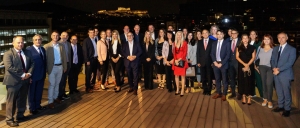-
Home

-
Maritime Training

- elnavi
elnavi
An acclaimed shipping personality that has contributed the most in the growth of the Cyprus Shipping Registry was honored with Cyprus Shipping Award in the opening reception of Maritime Cyprus Conference at Limassol.
The award was granted to George Prokopiou founder and managing director of Dynacom Tankers & Dynagas and was delivered by Nikos Christodoulides, president of Cyprus Republic who said that the shipping industry is very important for Cyprus that is a fully pledged and dynamic shipping center. Cyprus provides the appropriate framework for a sustainable growth
Knowledge journey continues
In his speech George Prokopiou dedicated this award to Glyfada the place the he was born and grown up. George Prokopiou has followed an exciting career of 52 years and thanked his wife Alexandra and daughters Elisa Ioanna Marina Elena.
The deputy minister of shipping Marina Chatzimanolis in her introductory remarks said that the Cyprus Shipping Award is granted to leading personalities of Shipping and pointed out that this year Cyprus celebrates 60 years of Cyprus Shipping register since it was launched in Famagusta currently occupied by Turks.
It must be noted that George Prokopiou is an innovative shipowner who has crossed the northern sea route and lately contributed to the fleet of Cyprus Register five state of the art LNG carriers.
George Prokopiou is the first shipowner from Greece that receives the Cyprus Shipping Award since it was first launched in 2004.
ELNAVI Newsletter
More Information: ELNAVI,
19, Aristidou str., Piraeus 185 31,
Tel.: +30 210 45.22.100, e-mail: This email address is being protected from spambots. You need JavaScript enabled to view it.
MARITIME CYPRUS 2023
MARITIME CYPRUS CONFERENCE 2023 - DAY 1
Sustainable shipping towards 2050: a mission (Im)Possible
Stefanos Papandreou & Theano Kalapotharakou Elnavi’s Co publishers, exclusively report from Limassol Cyprus
The discussion was moderated by Themis Papadopoulos President CSC & CEO of Interorient Navigation.
Mr. Emanuele Grimaldi ICS President and MD of Grimaldi expressed his concerns about ETS EU that will cause a very confusing maritime environment and other countries around may follow the same paradigm creating a mix of trading systems.
Mr. Philippos Phillis ECSA President & CEO of Lemissoler marked that we are heavily regulated however we don’t have enough tools to encounter with the difficulties.
Mrs Blenheim president of German Shipowners Association said that we need an international framework and a clear path to go ahead with the requirements.
Nikolaus H. Schuss President of BIMCO referred to the targets of decarbonization mentioning that are too tough but there are various steps such as raising money from a levy on marine fuel and multiple technologies for alternative fuels.
All speakers agreed that EU has to reconsider the ETS and alternative fuels are at the moment impossible to be adopted by the shipping industry and the only way to achieve the targets is to align our policies and adopt a more realistic approach.
What we have to avoid is prejudice and fundamentals. We cannot have zero emissions in one day, it will take much time for sure more than a couple of decade and moreover EU has to address the issue inside the IMO framework.
Mr. George Mouskas vice President of CUS moderated a panel with distinguished shipowners and discussed the perspective on the future of EU shipping.
Mr. Andreas Hadjiyiannis President of CUS pointed out that ETS should address the cargo owner and the charterers otherwise these measures and regulations harm the competitiveness of the shipping industry. Shipowners operate their ships with most efficient way and economically approach.
Mr. George Prokopiou chairman of Dynacom, Tankers Management expressed his concern about the ongoing process of decarbonization adopted by IMO. Europe is shooting its foot with these unrealistic measures as we should have in mind that China has everything shipyards ships banks crews.
Suzanna Laskaridis director of Laskaridis shipping was asked if EU shipping will grow in the next years. We have to be more self-sufficient in maintaining our fleet as Europe and reminded the Covid -19 period that it took much time to persuade politicians to recognize seafarers as essential workers and the closure of the suez canal that caused a huge disruption in the world trade.
Mr. Thanassis Martinos Managing Director of Eastern Mediterranean noted that Europe is not so much important for tramp owners. All these measures are influencing container ships and ferry ships on the contrary the organized shipowners will be benefited from this window of opportunity.
“All these innovative ideas will not contribute to clean the environment and why we penalize the ships since we have a common interest to reduce consumption of fuels. Shipowners are the biggest environmentalists we love sea” said Mr. Prokopiou.
Mr. Martinos referred to the taxation system and he said that does not worry because it is based on tonnage tax however he is very concerned about the sanctions. The majority of the Greek owned fleet is under Panama Marshall and Liberia is not under European therefore sanctions are not working for the benefit of European shipping.
All speakers agreed that Europe must realize that shipping is a valuable asset with huge geopolitical importance.
MARITIME CYPRUS CONFERENCE 2023 - DAY 2
Energy Transition in shipping
The topics of energy transition, transformation of Shipping and the role of shipbuilding in an evolving shipping industry were discussed by prominent and distinguished personalities.
The first panel included the following speakers: Semiramis Paliou CEO of Diana Shipping, Jan Dieleman president of Cargill Ocean, Sebastian Landerretche head Freight platform Dreyfus and Roel Hoenders head of Climate Action & Clear Air of IMO.
The discussion was moderated by Manuela Tomassini head of sustainability and technical assistance of EMSA.
Anne Katrine Bjerregaard head of strategy sustainability and ESG Marsk McKinney Moller Center for zero carbon Shipping warned that it is time to act now as the shipping industry radically transforming towards 2050.
The next panel was moderated by Nick Brown chairman of IACS. The panel included the following speakers: Konastantinos Stampedakis co-founder & MD of Erma first, Polys Hajioannou CEO & Chairman of Sage Bulkers Inc, Chris Alexander Korfiatis Vice President of Marine operations of Royal Caribbean, Mark O’ Neil president of Intermanager, Kenneth Tveter head of green transition of Clarksons, and Stephanos Angelakos CEO of Angelakos Hellas.
Speakers agreed that although the yards’ capacity is declining new shipyards established to invest in more energy efficient ships.
The need for newbuilding ships and more innovative projects will create strong partnerships in the shipbuilding sector that will enable to develop non carbon projects.
Polys Hajioannou announced that Safe Bulkers ordered two dual fuel ships, green methanol ready that will be delivered in 2026 although. Polys Hajioannou marked that although we risk $6mil in excess the only reason we did it is that we want to lead the market in this decarbonization path of shipping.
The speakers also mentioned that shipping far more than the ports to operate environmental friendly for two reasons. The first has to with the cold ironing infrastructure and the second with the offloading of carbon capture residues.
At moment we navigate an unknown future in the shipbuilding sector because we are not ready for the changes especially regarding the alternative fuels.
However all stakeholders in Shipping would like to help and invest on the development of the utmost sustainable and efficient technologies to create a better environment for our children.
MARITIME CYPRUS 2023 - DAY 3
Exploring Ship Finance
In the last day of the conference the discussion directed to the future trends of the sectors of ship financing and maritime technology.
Ben Nolan managing director of Stifel referred to the future trends and emerging markets for a dynamic and resilient shipping industry followed by a panel discussion that included Christos Tsakonas global head of shipping DNB Bank, Erik Helberg CEO Clarksons securities, Nicole Mylona CEO Transmed Shipping, Harry Vafias CEO and founder STEALTHGAS inc, Mark Friedman Senior managing director Evercore, Atef Abou Merhi Managing Director Pelagic Partners. The speakers discussed the topic navigating the seas of Capital and exploring ship finance.
They agreed Shipping othe most efficient mean of transporting commodities and financing will have a great effect on how much the market will go ahead in the years ahead.
Christos Tsakonas referred to the various sources of Capital such as bank lending private equity and stock exchange and pointed out that a bank evaluates track record cash flow and the viability of the project in regards to the new environmental regulations.
All speakers agreed that currently capital is available but it is too expensive.Mark Friedman marked that we also have in mind that shipping is cyclical market so the timing is very important.
Nicole Mylona agreed that there is available capital for good projects and added that the a crucial factor for granting financing is sustainability which means reducing the consumption of air emissions and maintaining energy efficiency strategy.
The last years alternative sources of financing have replaced the traditional lending.
Harry Vafias mentioned that StelthGas and the other companies of Vafias Group have eliminated bank financing and has taken advantage other means capital to expand and grow its fleet.
Abou Merhi remarked that private equity focuses on long terms projects and do not invest on risky assets.
It must be noticed that at the moment all shipping sectors experience an exceptional market Drycargo Tankers Containerships Car carriers LNG etc giving phenomenal returns to the investors.
Nicole Mylona remarked that ongoing environmental regulations will cause a significant increase in the operation expenses of ships however competition is a good driver to maintain cost effective and survive through the market difficulties.
However it is very hard for small companies to afford the energy transition compared with the bigger companies with 50-100 vessels can operate more easily an ammonia powered fleet.
Harry Vafias agreed that there is a reduction of the number of the shipping companies but the most important is the balance sheet and not the number of ships. You can survive everything if you can control the operational costs.
Regarding startup companies it is quite difficult to get finance especially in projects that has to do with premature or risky project last such as nuclear propulsion.
An important question was raised by Haralampos Mylonas founder of Transmed Shipping in which sector of the shipping industry it’s more profitable to invest in the next few years. Speakers said that tankers will be an attractive sector to invest and every good project in any market that is conducted by an excellent management team.
The key technological changes and the digitizal transformation in shipping
The speakers of the technology session Peter Broadhurst Inmarsat, Erwin Derlagen Enesel and Piotr Intership Navigation referred to the most significant technological advances of the last decade.
The speakers said that we can take advantage of the technology to improve two main areas: the skills of the crews and the predictive maintenance of the vessels.
However we have to educate people how to use technology onboard and empower the knowledge of seafarers by dialogue and communication.
Commercialization of technology is another important aspect with the to improve safety data collection.
Another important remark is that the technology is an aid to navigate the vessel and you can rely totally on the digital tools and ship’s equipment.
The speakers also mentioned that technology also create new risks and challenges and the complexity and regulators respond too slowly to the implementation of technology.
ELNAVI Newsletter
More Information: ELNAVI,
19, Aristidou str., Piraeus 185 31,
Tel.: +30 210 45.22.100, e-mail: This email address is being protected from spambots. You need JavaScript enabled to view it.
Post combustion CCS system absorbs CO2 from a vessel’s exhaust gas that is heated to capture CO2 and then liquefied and stored cryogenically onboard.
Lloyd’s Register (LR) has awarded Approval in Principle (AiP) to ERMA FIRST for its amine absorption-based Carbon Capture & Storage (CCS) system.
ERMA FIRST’s CCS system uses absorption technology to mix CO2 (carbon dioxide) flue gases with a proprietary amine solvent, which is then heated to produce a chemical reaction which reverses the absorption and separates the CO2 from the solvent. The CO2 from this process is then liquified and stored under cryogenic conditions onboard with the solvent ready to use in the same process again, creating a regenerative loop for CCS.
With the ability to capture a significant amount of CO2 from exhaust emissions, ship owners and operators will be able to meet and exceed the IMO’s strengthened emission reduction targets, whilst increasing their vessels’ lifecycle.
LR's AiP, as part of the Risk-Based Certification process, has enabled the technology to achieve this important milestone and allows ERMA FIRST to proceed with onboard pilot testing of the application, whilst LR continues to support its industry partners in de-risking their maritime assets.
The AiP builds upon the commercial success of ERMA FIRST’s ballast water treatment system, the ERMA FIRST FIT BWTS, which received type approval from LR back in November 2018.
Nick Brown, CEO, Lloyd’s Register, said: “LR is pleased to have awarded ERMA FIRST with Approval in Principle for its post combustion Carbon Capture & Storage system. CCS technology presents a real and credible route for the maritime industry to reduce its greenhouse gas emissions in the short to medium term and this AiP is evidence of LR’s tangible actions to support the global energy transition.
“Acting as trusted advisers and using our technical expertise throughout the certification process, LR continues to proactively identify a broad range of technologies that can de-risk operations for maritime stakeholders.”
Konstantinos Stampedakis, Co-Founder & Managing Director, ERMA FIRST, said: “We are delighted to have received Approval in Principle from Lloyd’s Register for the ERMA FIRST CCS system. ERMA FIRST is committed to developing solutions that support the maritime industry’s green transition and achievement of the IMO’s decarbonisation ambitions. This AiP represents a significant milestone for our CCS project, and we look forward to continuing to work with Lloyd’s Register as we move into the next phase of this important project.”
Image: (from left to right) Panos Mitrou - LR Global Gas Segment Director, Eleni Polychronopoulou - ERMA FIRST President, Nick Brown - LR CEO, Konstantinos Stampedakis, Co-Founder & Managing Director - ERMA FIRST
ELNAVI Newsletter
More Information: ELNAVI,
19, Aristidou str., Piraeus 185 31,
Tel.: +30 210 45.22.100, e-mail: This email address is being protected from spambots. You need JavaScript enabled to view it.
Following an ambitious ESG strategy Safe Bulkers has entered into contracts for the acquisition of two dual-fueled, 81,200 dwt, Kamsarmax class dry-bulk vessels, at attractive prices with scheduled delivery dates in the fourth quarter of 2026 for the first vessel, and in the first quarter of 2027 for the second vessel.
The newbuild vessels are designed to meet the requirements of Energy Efficiency Design Index related to Green House Gas, GHG emissions, ‘EEDI, Phase 3’ and to comply with the NOx emissions regulation, NOx-Tier III.
The newbuild vessels are capable of operating with methanol and fuel. When powered by green methanol the vessels can produce close to zero GHG emissions based on the life cycle assessment (LCA) methodology well-to-propeller (WTP).
The Company has already taken delivery of five IMO GHG Phase 3 – NOx Tier III vessels and is expected to take delivery 9 additional newbuilds, two of which dual-fueled, with scheduled deliveries two in 2023, three in 2024, two in 2025, one in 2026 and one in the first quarter of 2027.
Dr. Loukas Barmparis, President of the Company commented: “Following our fleet renewal strategy developed after 2019 with 12 newbuilds, we have extensively assessed the use of technologies leading to net-zero GHG emissions. The two new contracts, with relatively prompt deliveries, signed today, reflect our ambition to be in the forefront of environmental developments.”
About Safe Bulkers, Inc.: The Company is an international provider of marine drybulk transportation services, transporting bulk cargoes, particularly coal, grain and iron ore, along worldwide shipping routes for some of the world’s largest users of marine drybulk transportation services. The Company has a fleet of 45 vessels, consisting of 11 Panamax, 8 Kamsarmax, 18 Post-Panamax and 8 Capesize vessels, with an aggregate carrying capacity of 4.6 million dwt and an average age of 10.6 years. Twelve vessels in our fleet are eco-ships built after 2014, and five are IMO GHG Phase 3 – NOx Tier III vessels built 2022 onwards. The Company’s common stock, series C preferred stock and series D preferred stock are listed on the NYSE, and trade under the symbols “SB”, “SB.PR.C”, and “SB.PR.D”, respectively.
Image: Dr. Loukas Barmparis, President of Safe Bulkers Inc.
ELNAVI Newsletter
More Information: ELNAVI,
19, Aristidou str., Piraeus 185 31,
Tel.: +30 210 45.22.100, e-mail: This email address is being protected from spambots. You need JavaScript enabled to view it.
Signal Ocean launches Data Warehouse to supercharge shipping’s data-crunching capabilities
Signal Ocean, the maritime data platform, launched a cloud-based Data Warehouse providing a central source of commodity shipping market data that can be streamed in real-time into in-house data environments, helping to automate market reporting. The new way of accessing maritime market data enables market analysts and traders to build their own bespoke reporting capabilities in-house, doing away with countless hours of data crunching daily.
The Signal Ocean platform uses AI, advanced geospatial models and predictive technology to provide ship owners, brokers, traders, charterers and market analysts with real-time shipping market data – combining industry insight with a breadth of vessel information relevant to chartering and trading decision-making. This is integrated for each user company, with their own proprietary data automatically extracted from emails and messaging systems to create unique and secure private market dashboards that give at-a-glance market views.
The Signal Ocean Data Warehouse provides an alternative solution for accessing the complete body of Signal Ocean data for companies that prefer SQL (Structured Query Language) to power their business intelligence platforms, including Microsoft Excel, Power BI or Tableau. Using the Data Warehouse and a suite of sophisticated APIs (Application Programming Interfaces), users can live-stream Signal Ocean’s data directly into their own applications – automatically combining precise real-time market data with their own proprietary information.
Dimitris Tsapoulis, Group COO, Signal Group, explains: “The sheer scale of data now available to brokers and analysts in the current trading environment is overwhelming to anyone still trying to run the entire data crunching process manually. Our Data Warehouse offering will do the heavy lifting for them by seamlessly streaming the data Signal Ocean curates into their own systems and dashboards and automatically integrating that data with their own information. This will save hours a day and – crucially – make sure users are not on the back foot in what is an exceptionally fast-moving and volatile trading environment.”
“We’ve also made sure that the Data Warehouse solution is as close to a plug-and-play solution as you can get – there is no need for extremely resource-heavy IT integrations or investment in additional storage infrastructure, because our data is hosted on the cloud and our APIs are constantly updated. In short, with the Data Warehouse, companies of any size can harness all available market data without the huge costs in time and money of sifting through a mountain of data and information while their competitors beat them to the fix.”
The Signal Ocean Data Warehouse converges data that spans the entire spectrum of a shipping analyst’s requirements, including vessel particulars, daily AIS, voyages, tonnage list, daily vessel status, distances, vessel emissions, vessel valuations, port expenses, geos, market rates and freight data – and makes them available through a single unified SQL database.
“Data Warehousing is not a new innovation in IT; but this approach has not been applied to shipping data analytics on this scale ever before. It will be a game-changer and will help to level the playing field in terms of data accessibility and control and will also mean that brokers can focus on delivering real value – concentrating on making connections and closing deals,” adds Roussos Paschopoulos, Chief Strategy Officer, Signal.
More information on the Signal Ocean Data Warehouse can be found here: https://www.
Request a demo:
Sign-up for Free platform trial: https://app.
Image: Signal Ocean's Data Warehouse to supercharge shipping's data-crunching capabilities
ELNAVI Newsletter
More Information: ELNAVI,
19, Aristidou str., Piraeus 185 31,
Tel.: +30 210 45.22.100, e-mail: This email address is being protected from spambots. You need JavaScript enabled to view it.
The maritime industry is increasingly recognizing the importance of seafarers' mental health as a critical factor in ensuring safe and efficient operations at sea. Extended periods of isolation, high-stress environments, and demanding work schedules can all contribute to mental health challenges among seafarers.
Meanwhile, technological advancements have sparked a revolution that is transforming the way ships operate and crew members are assessed. Automation, driven by artificial intelligence (AI) and cutting-edge technologies, is reshaping the maritime landscape by enhancing safety, efficiency, and crew performance but also increasing the need for critical thinking, decision making and interpersonal skills.
Today, innovative crew assessment methodologies are helping ship operators select, train, and manage their crew with greater precision and effectiveness. To address this issue, the integration of artificial intelligence (AI) into mental health programs and assessments holds the promise of more accurate, timely, and comprehensive evaluations.
This article delves into the intertwined evolution of technology and crew assessment onboard, highlighting their contribution to the overall well-being of the seafarers.
THE MORE COMPLEX TECHNOLOGY, THE MORE SKILLED AND FITTED PERSONNEL NEEDED.
Semi Autonomous Ships and Assessment
Semi-autonomous ships represent a new frontier in maritime operations, blending traditional seafaring with advanced technology. As a result, the next generation of seafarers will be a hybrid breed, combining the expertise of maritime operations with advanced technical skills. Investing in training and development will be essential to ensure that crew members are well-equipped to meet these challenges.
In a groundbreaking study titled "Identifying Skills and Competencies Towards Building a Training Framework for Future Operators of Autonomous Ships," authored by Gholam Reza and Samrat Ghosh, the authors delve into the essential skills and competencies required to build a comprehensive training framework for operators of autonomous ships. Reza and Ghosh propose a systematic approach to developing a training framework that caters to the unique demands of autonomous ship operation. The framework encompasses: Technical proficiency, decision making skills, adaptability and learning, human-machine collaboration, and emergency handling.
Equally important is the need to train seafarers on soft skills, psychological readiness and effective communication since seafarers will continuously need to adapt to new systems and tools. Operating with automated systems might mean fewer crew members leading to feelings of isolation therefore, emotional resilience, stress management training and support services will be crucial to crew welfare. Smooth operations between shore based control centers will require effective communication skills to detect and communicate potential issues.
It is essential that the maritime industry recognizes the interdependence between job performance and mental health. Psychological conditions like generalized anxiety or depression have been associated with impairments in cognitive functions like attention, concentration, memory, decision making and problem solving; traits highly needed when working in a complex or demanding environment.
The Role of Artificial Intelligence in Mental Wellbeing
As the maritime industry embraces automation, crew assessment methods are evolving to ensure that crew members can efficiently operate, troubleshoot, and manage these advanced systems.
Here's how AI can leverage seafarers' mental health and wellbeing
- Data Analytics and Monitoring: AI-powered tools can analyze data collected from various sources, including wearable devices, social media activity, and communication patterns. These analyses can provide insights into seafarers' emotional states, stress levels, and potential mental health concerns.
- Natural Language Processing (NLP): NLP algorithms can be used to analyze written or spoken communication for emotional cues. Chatbots or virtual assistants equipped with NLP can engage in conversations with seafarers, identifying signs of distress and providing immediate support or flagging concerns.
- Predictive Analytics: By analyzing historical data and patterns, AI algorithms can predict when seafarers might be at a higher risk of experiencing mental health issues. This enables proactive interventions before problems escalate.
- Remote Psychological Assessments: AI-powered psychological assessment tools can be used remotely to gauge seafarers' mental health conditions. These tools can provide standardized assessments and recommendations without requiring physical presence. IMEQ is the first one in the industry to offer AI based mental health assessments to seafarers.
- Personalized Support: AI can tailor interventions and support based on an individual's mental health profile. This includes suggesting coping mechanisms, stress-relief activities, and access to relevant resources.
- Reduced Stigma: AI-driven assessments can provide a level of anonymity that might encourage seafarers to open up about their mental health struggles, reducing the stigma associated with seeking help.
Artificial intelligence has the potential to revolutionize seafarers' mental health assessment, making evaluations more accurate, timely, and comprehensive. By identifying mental health challenges early, providing personalized support, and reducing the stigma associated with seeking help, AI can contribute to the well-being of seafarers and the safety of maritime operations. However, the responsible and ethical deployment of AI tools, combined with a recognition of the irreplaceable role of human empathy and understanding, will be crucial in achieving this goal. As the maritime industry continues to adapt to technological advancements, integrating AI into mental health assessment is a step toward navigating the waters of well-being more efficiently.
Assessments include :
Pre-Employment Assessments: Shipping companies often conduct psychological evaluations as part of the pre-employment screening process. These assessments help identify candidates who have the psychological resilience and coping skills required to endure the isolated and demanding environment of maritime work.
Depression and Anxiety Screening: Given the isolated nature of maritime work, screening for conditions like depression and anxiety is essential. Early detection can lead to timely support and intervention.
Adaptability : Maritime work often involves being away from home and adapting to different cultures and environments. Psychological assessments may evaluate a candidate's adaptability and ability to cope with change.
Emotional Well-being: Assessments focus on assessing emotional stability and resilience. This includes evaluating a seafarer's ability to manage stress, anxiety, and isolation effectively.
Substance Abuse Screening: Assessments may include screening for substance abuse issues, as the isolated and stressful environment of a ship may contribute to such problems.
Fatigue and Sleep Assessments: Sleep is crucial for cognitive function and overall well-being. Assessments might involve evaluating a crew member's sleep patterns and potential sleep disorders.
Post-Traumatic Stress: For crew members who have experienced traumatic events at sea, psychological assessments can help identify potential post-traumatic stress symptoms and ensure appropriate support is provided.
Cognitive Assessments: Cognitive assessments gauge a seafarer's ability to perform critical tasks, make decisions under pressure, and maintain situational awareness. These assessments ensure that crew members are mentally equipped to handle their responsibilities effectively.
Communication Skills: Effective communication is vital on a ship. Assessments may evaluate a seafarer's interpersonal skills, teamwork abilities, and conflict resolution capabilities.
Personality Assessments: Provide insight about a person’s characters traits, temperament, motivational drives and behavioral tendencies and how these might interact with the work environment.
Resilience Training: In addition to assessments, some shipping companies offer resilience training programs. These programs equip crew members with coping strategies and mental health support resources.
Wellness Initiatives: Progressive shipping companies invest in wellness initiatives that promote mental health awareness and provide resources for crew members to manage stress and maintain mental well-being.
Revolutionizing Mental Health Assessment with AI Integration
At IMEQ, we advocate for businesses to prioritize their workforce over the mere pursuit of substituting human roles with machines. It's imperative to strike a balance between technology and human talent. Once individuals are adeptly trained to harness technology, a seamless synergy between man and machinery can be achieved. A critical component of this vision is preparing individuals for the automation age; hence, we are loyal supporters of comprehensive crew assessments.
We comprise a team of psychologists collaborating closely with Harvard University alumni. Our focus involves integrating artificial intelligence into mental health aspects within the maritime sector. We possess the expertise to address pertinent concerns related to mental health and its impact on occupational performance. Through our efforts, we've devised strategies, certifications, and training programs that prove valuable to ship-owning companies.
In September 2023 we launched the first ever on a world-wide scale, Predictive Model on Mental Health Fit with 98% accuracy. IMEQ's Cutting-Edge AI Integration using standardized testing and six AI models incorporated in the platform can predict if a candidate will exhibit mental health problems in the future.
CONCLUSION
Crew members play a vital role in the safe and smooth operation of vessels, making their psychological health and stability an imperative factor for maritime companies to address.. Psychological well-being not only affects individual crew members but also impacts team dynamics, decision-making processes, and overall vessel performance. identifying potential psychological issues early and addressing them appropriately, maritime companies can prevent accidents, mitigate human errors, and promote a positive working environment.
ABOUT IMEQ
IMEQ© was founded in 2016 with a mission to safeguard crew psychological health and safety, while decrease risk factors associated with poor employee psychological health and workplace safety. Our mission to creating resonant working environments for onboard employees and ashore personnel is consistent with our vision: “Happier Seafarers Safer Journeys”.
Our digital platform utilizes standardized and evidence based assessments, an advanced test flow process and machine learning algorithm (artificial intelligence), that provide objective data on psychological & personality traits, attitudes and skills to simplify the hiring process and improve job fit.
Image: Alexandra S. Kaloulis, Managing Director of Innovative Maritime Emotional Intelligence Cenrtre (I.M.E.Q.)
ELNAVI Newsletter
More Information: ELNAVI,
19, Aristidou str., Piraeus 185 31,
Tel.: +30 210 45.22.100, e-mail: This email address is being protected from spambots. You need JavaScript enabled to view it.
Shipping’s largest awards event, the Lloyd’s List Greek Shipping Awards, is celebrating the 20th anniversary of its establishment back in 2004. Once again, the event will aim to put the spotlight on some of the industry’s leading individuals and companies as the achievements of Greek shipping and the Greek maritime cluster are celebrated at the traditional end-of-year awards presentation dinner In Athens.
Yearly since 2004, the Greek Shipping Awards has attracted capacity audiences of hundreds of guests and the 20th edition of the awards is expected to be no different.
Strong support for this year’s Awards is led by Erma First sponsoring the welcome drinks reception and a roster of prestigious Greek and international sponsors of the individual awards. Nominations are coming in as the deadline for entries for the 2023 awards nears. Nominations must be received by the organisers before midnight, Greek time, on Friday 13 October in order to be accepted.
Once again, a prestigious and highly knowledgeable panel of judges from across the industry will assess all nominations and will decide the winners of this year’s Awards.
The panel, broadly representing the Greek shipping industry, will be tasked with choosing ‘the best of the best’ in a range of categories that span the full gamut of Greece’s shipping industry – from the dry cargo, tanker and passenger line sectors - to achievements in safety, sustainability, technology, shipbroking, finance and more. There will be excitement, too, in learning the judging panel’s choice of winners for prestigious individual awards such as Personality of the Year, Seafarer of the Year, the Lifetime Achievement Award and the Next Generation Award.
For the anniversary edition of the world’s best-supported maritime awards event, the regular 18 award categories have been expanded to 20 with the addition of two special awards for 2023 only.
The ‘Deal of the Decade’ Award will focus on outstanding transactions during the period 2014 to 2023. A Deal of the Decade award was last given in 2013 and covered the first decade of the Greek Shipping Awards. It was won by Angeliki Frangou for her acquisition of Navios in 2005.
The second new award is the ‘20 Years Achievement Award (2004-2023)’ that will recognise the greatest individual or collective success, or the most transformative achievement, in Greek shipping in the last 20 years. There are plenty of strong candidates to choose from.
Neither of the two special awards is subject to a formal nomination process, but we welcome suggestions from the shipping public as to who would be worthy winners.
All the 2023 award-winners will be unveiled at the 2023 gala awards dinner on Friday, December 1 in Athens. Bookings for the dinner are already open.
2023 Award Categories & Sponsors
Welcome Drinks Reception
Sponsored by Erma First
Dry Cargo Company of the Year
Sponsored by Marichem Marigases
Tanker Company of the Year
Sponsored by Bureau Veritas
Passenger Line of the Year
Sponsored by SWS
Shipbroker of the Year
Sponsored by the Tsakos Group
Shipping Financier of the Year
Sponsored by Tototheo Maritime
Piraeus International Centre Award
Sponsored by ClassNK
Technical Achievement Award
Sponsored by DNV
The Safety Award
Sponsored by Seajets
International Personality of the Year
Sponsored by Capital Ship Management Corp.
Ship of the Year
Sponsored by ABS
Award for Achievement in Education or Training
Sponsored by Shipping Deputy Ministry, Republic of Cyprus
The Sustainability Award
Sponsored by Lloyd’s Register
The Next Generation Shipping Award
Sponsored by IRI / The Marshall Islands Registry
Lloyd’s List Intelligence Big Data Award
Sponsored by Panama Maritime Authority
Lloyd’s List / Propeller Club Lifetime Achievement Award
Sponsored by Franman
Greek Shipping Personality of the Year
Sponsored by Eurobank
AWARDS NOT DECIDED BY THE PANEL AND NOT OPEN TO OUTSIDE NOMINATIONS
Seafarer of the Year
Sponsored by Safe Bulkers, Inc.
Greek Shipping Newsmaker of the Year
Sponsored by ExxonMobil Marine
Deal of the Decade (2014-2023)*
Sponsored by Timagenis Law Office
20 Years Achievement Award (2004-2023)*
Sponsored by LPC S.A.
* Denotes special awards for 2023 only. We welcome all suggestions of worthy winners for these two awards.
ELNAVI Newsletter
More Information: ELNAVI,
19, Aristidou str., Piraeus 185 31,
Tel.: +30 210 45.22.100, e-mail: This email address is being protected from spambots. You need JavaScript enabled to view it.
In the framework of the European Shipping Summit in Brussels, President of the Union of Greek Shipowners (UGS), Ms. Melina Travlos, and members of the UGS Board of Directors, Mr. D. J. Fafalios, Ms. Marily Fragkista and Mr. V. Papagiannopoulos held a series of important meetings.
These deliberations served to fortify the bonds between the Greek shipping sector and its European counterparts, enhancing its impact on both European and global maritime affairs.
Throughout the summit, speakers underscored the imperative for the European Union to recognize the shipping industry as a pivotal, strategic ally, being the cornerstone of the EU's security and prosperity. Furthermore, they articulated shipping's integral role in bolstering Europe's economic stature. There was general agreement that prioritizing the competitiveness of European shipping must ascend to the forefront of the EU's agenda, safeguarding its prosperity, resilience, and sustainability, as well as ensuring energy and food sufficiency.
Ms. Melina Travlos, President of the UGS, engaged in a series of productive discussions with prominent figures in European governance and in the shipping sector. Noteworthy encounters included discussions with the Vice President of the European Commission, Mr. Margaritis Schinas; Chair of the International Chamber of Shipping (ICS), Mr. Emanuele Grimaldi; President of the German Shipowners Association (VDR), Ms. Gaby Bornheim; Director General of European Commission’s DG MOVE, Ms. Magda Kopczynska; President of BIMCO, Mr. Niko Schües; and the former President of the European Commission (2004 - 2014) and Keynote Speaker of the 2023 European Shipping Summit, Mr. José Manuel Barroso.
Furthermore, Ms. Adina Valean, EU Commissioner for Transport, met with Ms. Melina Travlos and Messrs. D. J. Fafalios and V. Papagiannopoulos. Their discussion revolved around the pivotal role of European shipping for the EU and the necessity to uphold and elevate its global competitiveness. What was emphasized as imperative is for EU shipping to maintain its status as a preeminent global force and a strategic partner for the EU, thereby safeguarding Europe's prosperity through its leading role.
At the grand banquet of the European Shipping Summit, Mr. Margaritis Schinas, Vice President of the European Commission, accentuated the manifold and substantial contributions of the shipping industry. He emphasized, "The shipping sector has a central and strategic role in ensuring Europe's security and prosperity, connecting our continent with the rest of the world and promoting the rules-based global order that is a core European value and interest. I want to stress that not only do we appreciate the contribution of the maritime sector to the Union’s response to climate change, but that we take seriously the threat to its competitiveness."
Keynote Speaker at the European Maritime Summit and former President of the European Commission, Mr. José Manuel Barroso, wondered about the degree of awareness amongst European citizens regarding European shipping's commanding share of 40% in the global fleet. He emphasized, "Shipping is a strategic pillar for Europe's security. It is the most environmentally friendly and energy-efficient mode of transport that safeguards free trade, which is a key factor for the prosperity of citizens. I would like to congratulate European shipping on its active support for the EU's decarbonisation targets. It is our duty to ensure that economic and financial support is provided for the green and digital transition of shipping. European shipping faces a significant threat due to the increasing competition with East Asian countries, which has created new standards in the sector. Ensuring a level playing field with China is a strict priority. Striking the right balance between the climate agenda and sector competitiveness is a major issue for the EU. We do not have a strategy for our competitiveness yet, and we must urgently adopt one at the European level."
UGS Secretary, Mr. Dimitrios Fafalios, contributed to the central round table discussion of the European Shipping Summit. He emphasized, "'In this complex geopolitical situation we are experiencing, our industry has the flexibility and the capacity to respond immediately to evolving challenges by shielding the interests of the EU. However, our sector, and SMEs in particular, face a serious competitive disadvantage, particularly in relation to East Asian countries whose national policies include the shipping sector as an integral part of its strategies."
In the European Shipping Summit context, Ms. Melina Travlos stated, "'The strategic importance of shipping for EU’s energy and food security as well as the robustness and prosperity of its economy is undeniable. However, we need strong political will and continuous commitment from decision-makers to enhance the international competitiveness of European shipping and to ensure both the viability of the sector and the energy autonomy of the EU."
ELNAVI Newsletter
More Information: ELNAVI,
19, Aristidou str., Piraeus 185 31,
Tel.: +30 210 45.22.100, e-mail: This email address is being protected from spambots. You need JavaScript enabled to view it.
The Propeller Club Piraeus participates in the International Steering Committee with C. Fragoulis and D. Ioannou
From September 26–28, 2023, the 97th Annual Convention and Conference as well as the Elections of the International Propeller Club were held in Charleston, South Carolina, USA, with the participation of 75 Propeller Clubs and delegates from the U.S. and international shipping industries.
During the Elections that took place on Thursday, September 28, Costis Frangoulis, the President of the Propeller Club of Piraeus, was elected 1st Vice President, while Governor Dorothea Ioannou was elected 2nd Vice President.
Having served two successful terms as 3rd and 2nd Vice President from 2021-2022 and 2022-2023, respectively, Costis Frangoulis is now the next favorite for the Presidency in September 2025. This would make him the first non-American President and, of course, the first Greek in the centennial history of the International Propeller organization.
The Greek distinctions, however, did not end there. Daniel Tadros and Stas Margaronis were elected at Large Directors, while Michalis Dalacouras is serving his second term as Regional Vice President, responsible for Southern Europe and Africa.
This large representation highlights the leading position held by Greece and our Club, in the global network of the International Propeller.
The new Board of IPCUS is now formed as follows:
International Officers
Executive Committee
President, Maria Conatser, PC Nashville
1st Vice President, Costis Frangoulis, PC Piraeus
2nd Vice President, Dorothea Ioannou, PC Piraeus
3rd Vice President, Bill Kusmick, PC Tampa
Treasurer, Stuart Smith, PC Galveston
Secretary, Pat Patrick, PC New Orleans
ELNAVI Newsletter
More Information: ELNAVI,
19, Aristidou str., Piraeus 185 31,
Tel.: +30 210 45.22.100, e-mail: This email address is being protected from spambots. You need JavaScript enabled to view it.
ABS Investments & Strategy in Greece
Aiming at further growth and value for its clients, ABS Hellenic has built a reputation as the leading classification society in Greece. The office of ABS in Piraeus has a track record of success for more than three quarters of a century through investments in Greece and Greek talent.
To highlight on the latest developments of ABS the senior executives of the Greek office organised a media event hosted at the Intercontinental Athens Hotel.
Vassilios Kroustallis, ABS Senior Vice President, Global Business Development welcomed the guests and pointed out that ABS works on various projects to develop alternative fuels leading in the field of non-carbon economics.
Mr. Kroustallis said that: “What is clear today is that, if our industry is to meet its sustainability objectives, the engine driving us there cannot be achieved without the contribution of Greek shipping. It will be Greek owners supporting pioneering projects on Greek vessels delivered by world-class Greek talent. Greece is the beating heart of our industry’s green energy transition. ABS is proud to be a key partner to Greek shipping and I believe that together we can forge a new, more sustainable shipping industry”.
Elias Kariambas, ABS Vice President, Regional Business Development Greece focused on the 70-year presence of ABS in the Greek shipping market and described the mission of the different departments in ABS Hellenic i.e. Global Sustainability Centre, Performance & Efficiency, Global Ship systems and Technical Committee.
Stamatis Fradelos, ABS Vice President Global Sustainability explained the aims of decarbonisation towards 2030-40-50.
Pantelis Skinitis, ABS Director Global Sustainability referred to the fuel mix towards 2050 and noted that not a solution fits in all vessels.
Finally, Chris Leontopoulos, ABS President Global Ship Systems Centre presented the future of maritime technology and the EU funded projects from ABS with the aim to develop innovative technical solutions for the smooth operation of the vessel and the maintenance adopting condition based approach in shipping. After the event a buffet dinner was offered at terrace area of the hotel.
ELNAVI Newsletter
More Information: ELNAVI,
19, Aristidou str., Piraeus 185 31,
Tel.: +30 210 45.22.100, e-mail: This email address is being protected from spambots. You need JavaScript enabled to view it.





